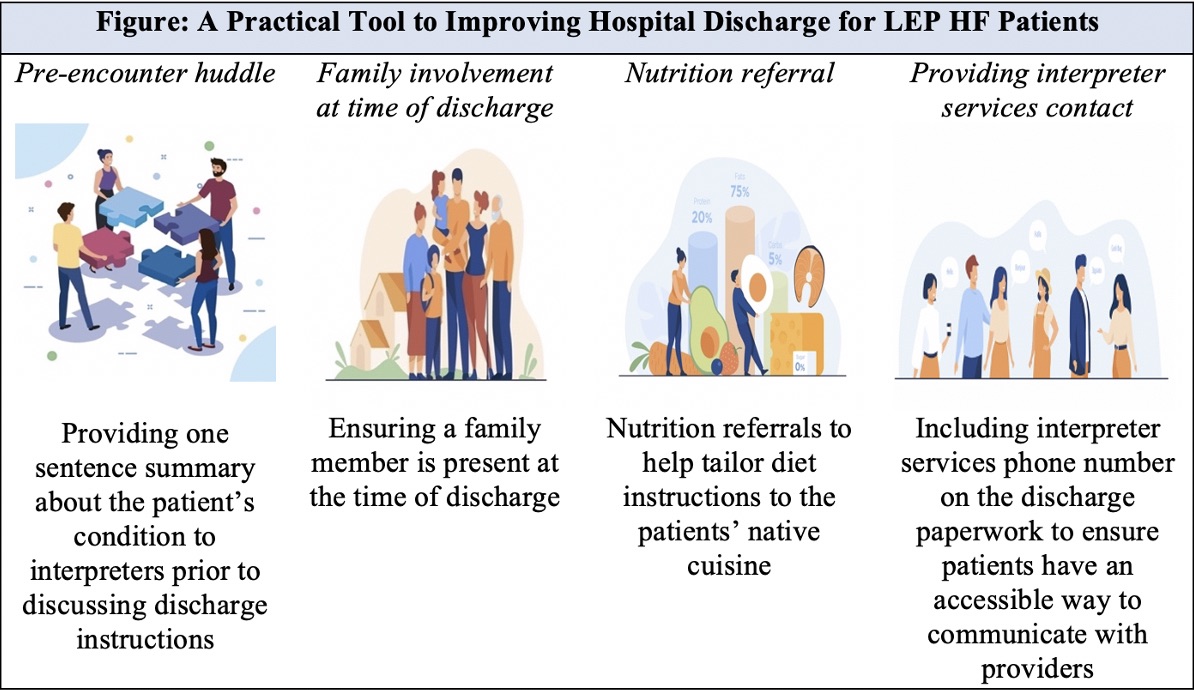Adding Language Interpreters to Care Team May Improve Care For HF Patients With Limited English Proficiency
Integrating language interpreters into heart failure (HF) care teams for HF patients with limited English proficiency could improve the discharge process and help reduce disparities, according to a study published in JACC: Heart Failure and presented April 2 at ACC.22.
Zara Latif, MD, et al., conducted in-depth, semi-structures qualified interviews with interpreters at an academic medical center between March and August 2021. Interviews were then transcribed and coded to determine themes interpreters raised.
The total population consisted of 20 interpreters with an average of 16.3 years of experience as an interpreter. Of 12 staff languages offered at the institution, six languages were represented in the study: Arabic, Cape Verdean, Chinese, Russian, Spanish and Vietnamese. In addition, interpreters for three nonstaff languages – Hindi, Italian and Polish – were included. After analyzing interview transcripts, the researchers identified two overarching themes: 1) Patients with limited English proficiency often had limited understanding of HF etiology, prognosis and treatment options; and 2) Practical steps were needed to improve the discharge process for HF patients with limited English proficiency.
Many interpreters believed there was a lack of communication about disease progression and noted that medication and dietary changes often were prioritized at clinic visits, but patients often did not understand the connection between HF symptoms and diet. Interpreters also suggested that discussions between the clinician and interpreter before discharge could give the interpreter time to prepare for the discharge discussion. In addition, interpreters stressed the importance of providing patients with the phone number for interpreter services, involving family at the time of discharge, approaching diet with a cultural-specific lens, and integrating interpreters into the care team.
According to the researchers, the findings "suggest that the lack of patients' understanding of their condition and lack of discussions regarding disease severity are two potential contributors" to poor outcomes among patients with limited English proficiency. They note that the study highlights the importance of integrating interpreters into the care team to help patients understand their illness and improve the discharge process. "Future studies focusing on integrating interpreters as part of the HF team and designing practical discharge plans for [limited English proficiency] HF patients could reduce current disparities faced by this vulnerable community," they conclude.
Clinical Topics: Heart Failure and Cardiomyopathies, Prevention, Acute Heart Failure, Diet
Keywords: ACC International, ACC22, ACC Annual Scientific Session, Language, Limited English Proficiency, Patient Discharge, Patient Care Team, Academic Medical Centers, Disease Progression, Severity of Illness Index, Ambulatory Care, Heart Failure, Prognosis, Italy, Russia, China, Diet, Communication Barriers, Translating
< Back to Listings


